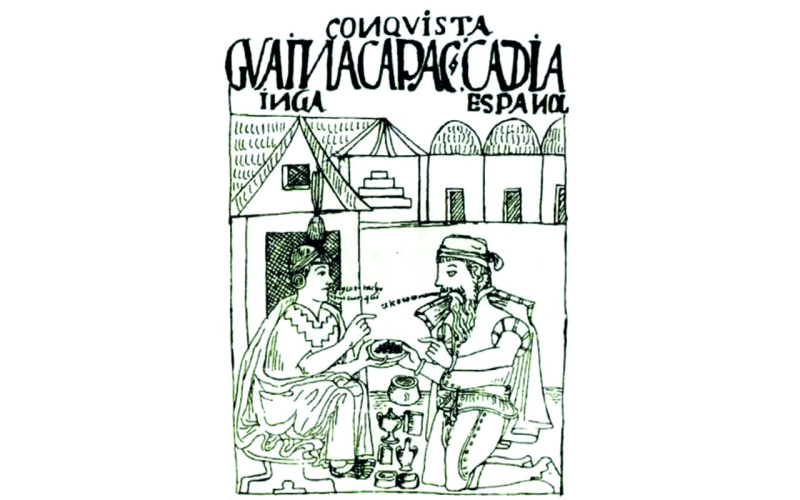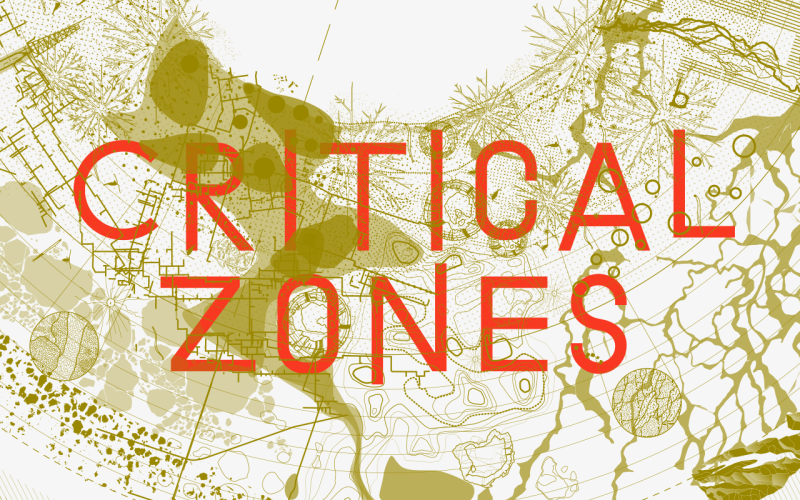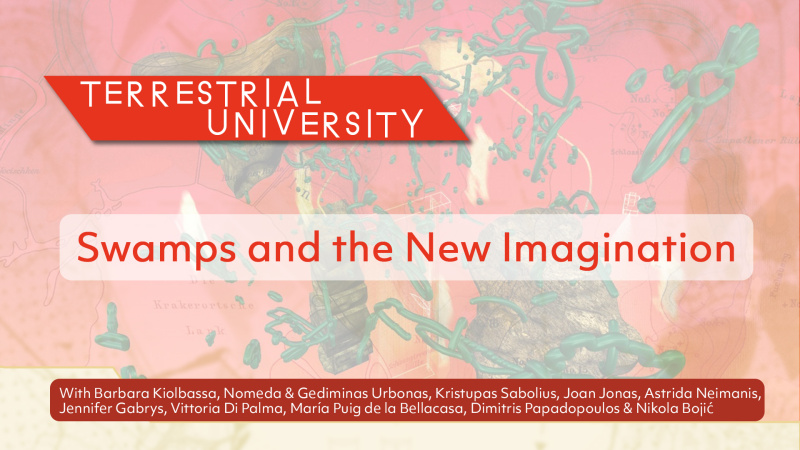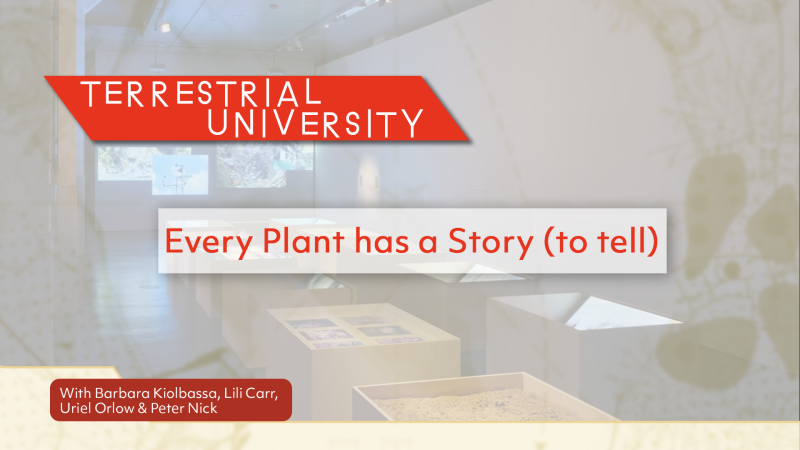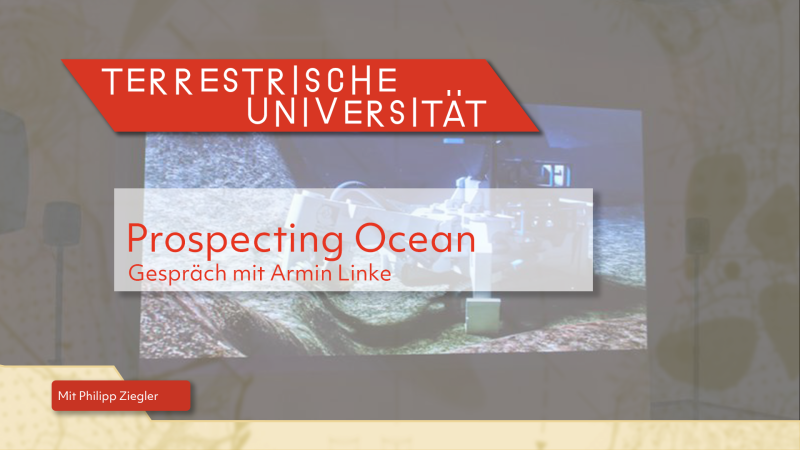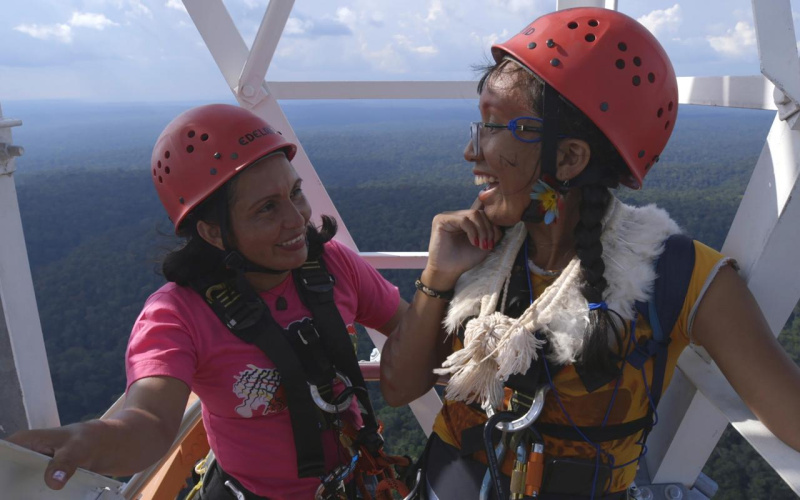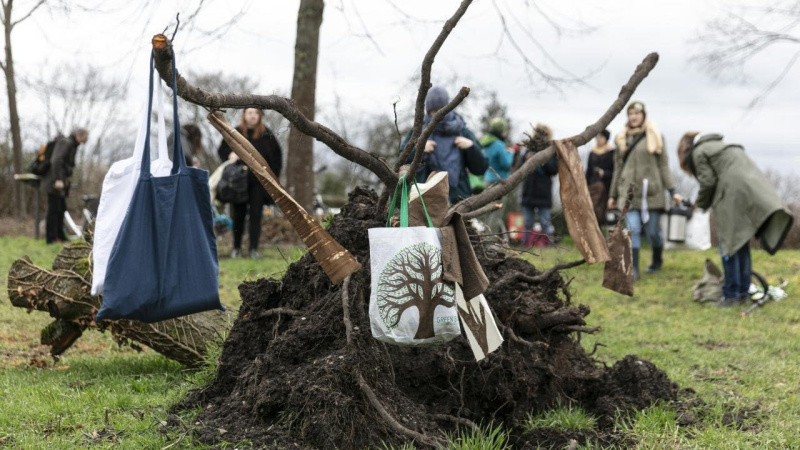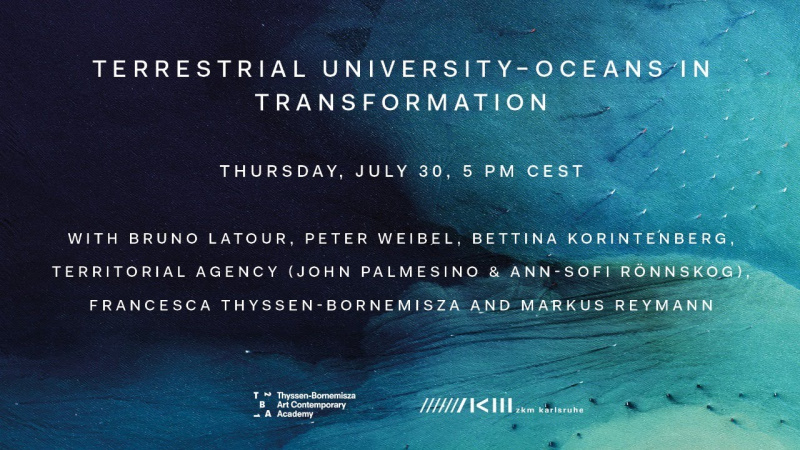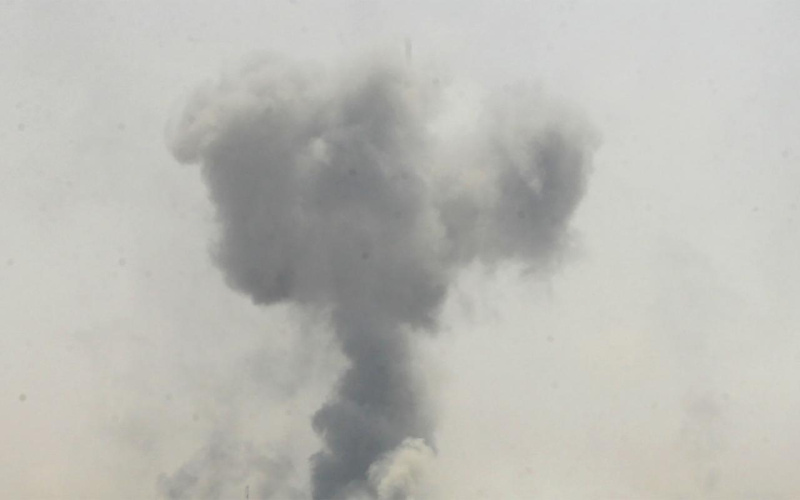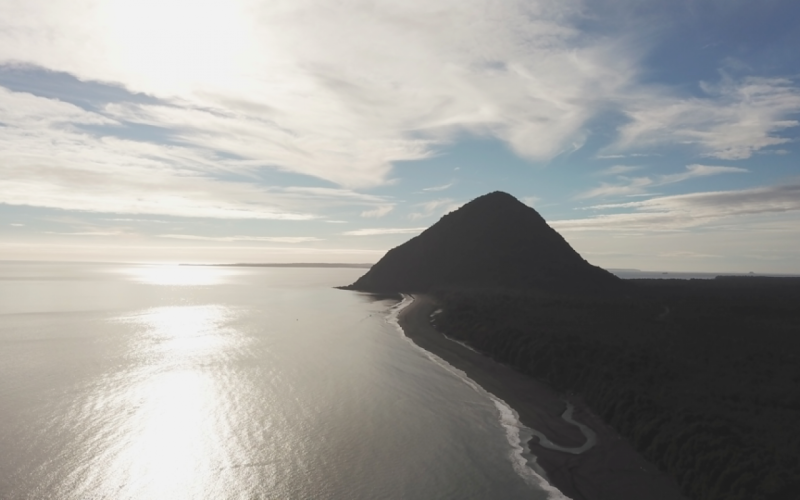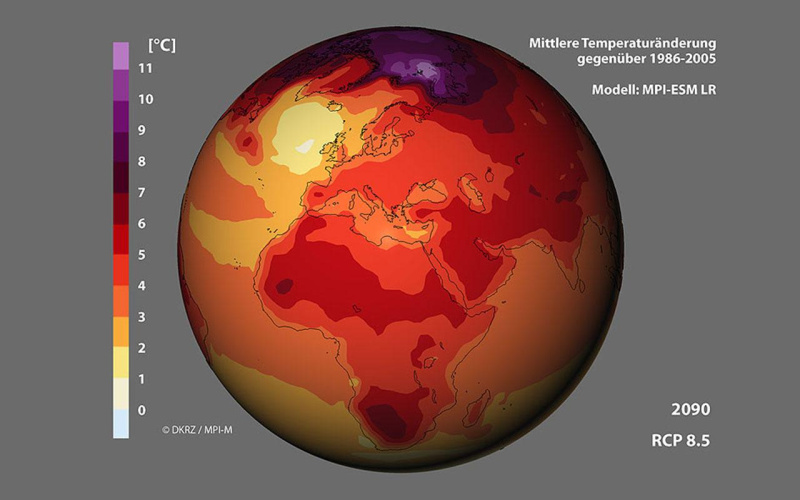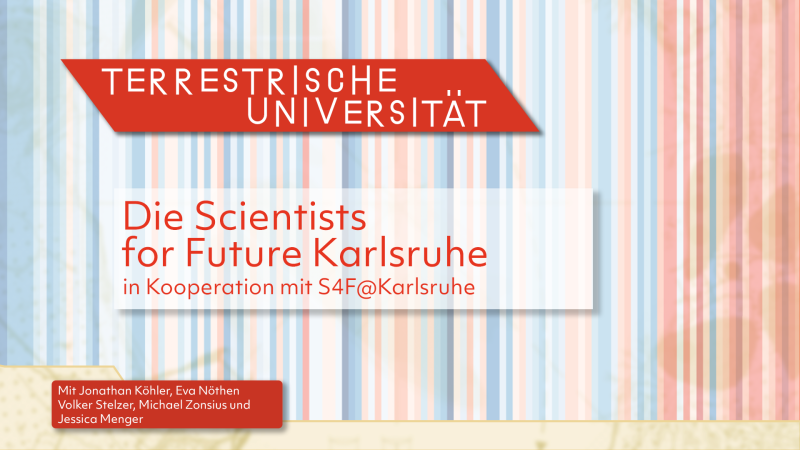Universidad Terrestre: Pacha y ch'ixi. Equilibrio Cosmológico Andino
Silvia Rivera Cusicanqui y Kirsten Mahlke en conversación
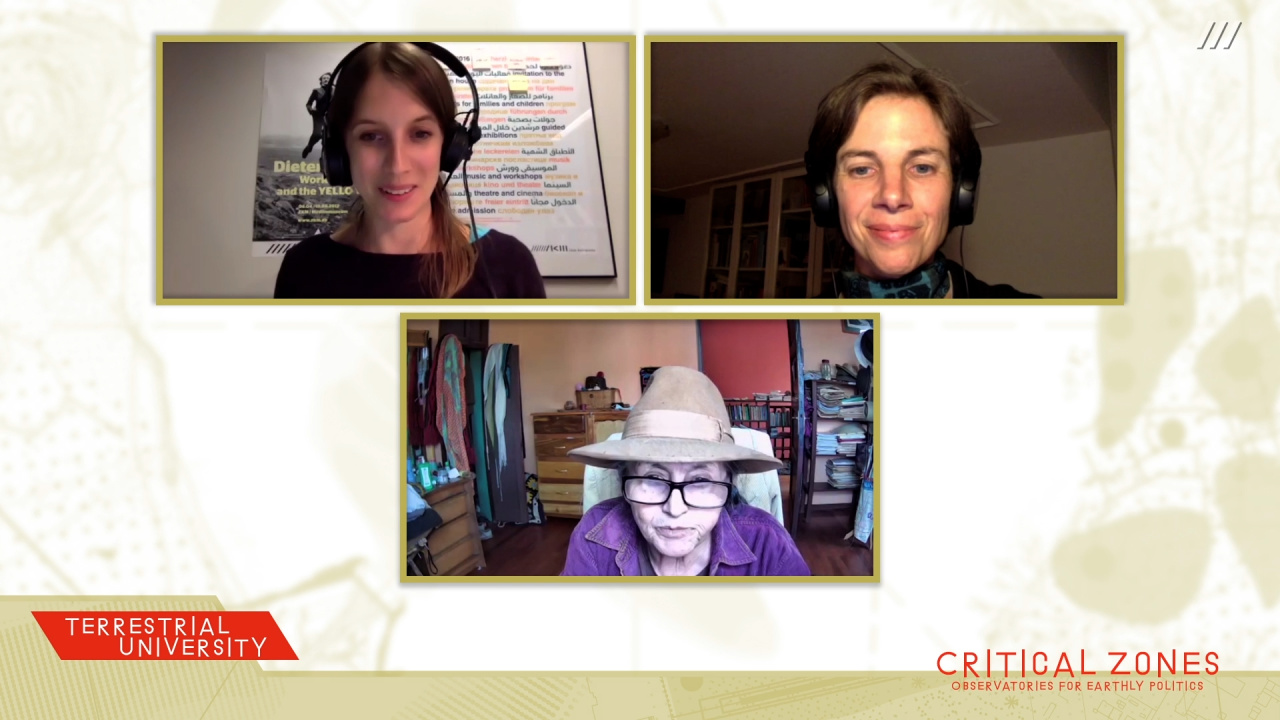
- Date
- Duration
- 1:03:41
Description
Silvia Rivera Cusicanqui and Kirsten Mahlke in conversation The event is held in Spanish original soundtrack and with a simultaneous translation into English. Spanish version: https://www.youtube.com/watch?v=XRpNK... What cultural foundations make it possible to live well and in a sustainable way together on Earth? Waman Puma (17th century) offered concepts and perspectives from the Andean language and worldview. What is meant by this and what it means will be discussed by Prof. Dr. Silvia Rivera Cusicanqui and Prof. Dr. Kirsten Mahlke. The early Portuguese and Spanish colonial period was a time of change that still resonates today culturally, economically and ecologically. The motto on the flag of the Spanish royal house is »Plus Ultra«, which means »further«, the transgression of the previously valid limits »Non plus ultra«. With Francis Bacon (1620), »Further and further« became the guiding principle of modern natural sciences: Knowledge and experience were beyond boundaries, beyond the old world. The motto of not stopping, of crossing all borders, of having the world at one's disposal, originating from colonial times, have caused an unprecedented and continuing ecological and social catastrophe. Initially working for the Spanish colonial administration in the Viceroyalty of Peru, the lawyer Felipe Guaman Poma de Ayala (also: Waman Puma, approx. 1530–1615) wrote a 1200-page letter to Spanish King Felipe III (1598–1621) in the early 17th century. The letter is an early form of non-violent and rhetorically sophisticated resistance to the principle of the »Plus Ultra.« In his work, he described the numerous consequences of colonization in his country and, in a fictitious dialog with the king, proposed reforms that would re-regulate the treatment of people, the environment and working conditions in terms of balance and sustainability for future generations. At the heart of the letter stands the question: How can we live well together in the face of a derailed political order and world economy? What cultural foundations make it possible to sustain life? These are reform ideas based on reciprocity, on exchange relations and the balancing of opposites. The underlying principle, which Rivera Cusicanqui derives from Andean cosmology, is called »ch'ixi« [1]. »Ch'ixi« is a principle that allows opposites to stand side by side without erasing one. Non-resolvable contradictions and opposites, considered as »both...and«, are foundations of this world order: the greater the difference between things, the more important is an exchange relationship between them. The gift requires a counter-gift, just as night requires day, work requires sleep. Good living according to Waman Puma is thus understood as a balance of giving and receiving. Good governance takes care to maintain or restore economic balance. At the center of Andean cosmology is life in a spatiotemporal order, »pacha«. »Pachacuti« means the overthrow of the world order, a world out of joint, in crisis. [1] »The concept of ch'ixi (...) corresponds to the idea in Aymara of something that is and is not at the same time, that is, the logic of the included third. The color gray as ch'ixi is white and not white at the same time, it is white and also black, its opposite.« Silvia Rivera Cusicanqui, Ch’ixinakax utxiwa. Una reflexión sobre prácticas y discursos descolonizadores«, Buenos Aires 2010, p. 69. Prof. em. Dr. Silvia Rivera Cusicanqui (*1949) is one of Latin America's leading intellectuals. An Aymara speaker and sociologist (Univ. San Andrés, La Paz), she combines Andean traditions and cosmovisions with decolonial theories and practices. She is also a historian, anarchist theorist, feminist, educator, and activist. Rivera Cusicanqui's work on Oral History and sociology of the image are holding key roles in understanding the dialectics of colonization and form thresholds toward decolonial practice. She was instrumental in legalizing the coca plant and its cultivation in Bolivia. Her best-known works include »Oprimidos pero no vencidos« (1984) and »Sociología de la imagen: miradas ch'ixi desde la historia andina« (2010). Prof. Dr. Kirsten Mahlke is Professor of Cultural Theory and Cultural Studies Methods at the University of Konstanz. Her research interests include the archives and narratives of European-South American entanglement history since the early modern period, Rioplatensian fantasies and their traumatic dimensions in the 20th century, and the practices and discourses surrounding birth and death. She co-produced an e-learning for the police, »Delivering Death Messages Responsibly.« Recently published by her (with Spiller, Roland, Reinstädler, Janett (eds.)) is »Trauma y memoria cultural. Hispanoamérica y España« (2020).
